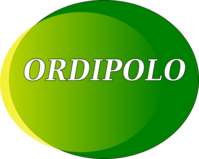1
2
3
4
5
6
7
8
9
10
11
12
13
14
15
16
17
18
19
20
21
22
23
24
25
26
27
28
29
30
31
32
33
34
35
36
37
38
39
40
41
42
43
44
45
46
47
48
49
50
51
52
53
54
55
56
57
58
59
60
61
62
63
64
65
66
67
68
69
70
71
72
73
74
75
76
77
78
79
80
81
82
83
84
85
86
87
88
89
90
91
92
93
94
95
96
97
98
99
100
101
102
103
104
105
106
107
108
109
110
111
112
113
114
115
116
117
118
119
120
121
122
123
124
125
126
127
128
129
130
131
132
133
134
135
136
137
138
139
140
141
142
143
144
145
146
147
148
149
150
151
152
153
154
155
156
157
|
<?php
declare(strict_types=1);
namespace Doctrine\DBAL\Schema;
use Doctrine\DBAL\Platforms\AbstractPlatform;
use function array_map;
use function crc32;
use function dechex;
use function explode;
use function implode;
use function str_contains;
use function str_replace;
use function strtolower;
use function strtoupper;
use function substr;
/**
* The abstract asset allows to reset the name of all assets without publishing this to the public userland.
*
* This encapsulation hack is necessary to keep a consistent state of the database schema. Say we have a list of tables
* array($tableName => Table($tableName)); if you want to rename the table, you have to make sure this does not get
* recreated during schema migration.
*/
abstract class AbstractAsset
{
protected string $_name = '';
/**
* Namespace of the asset. If none isset the default namespace is assumed.
*/
protected ?string $_namespace = null;
protected bool $_quoted = false;
/**
* Sets the name of this asset.
*/
protected function _setName(string $name): void
{
if ($this->isIdentifierQuoted($name)) {
$this->_quoted = true;
$name = $this->trimQuotes($name);
}
if (str_contains($name, '.')) {
$parts = explode('.', $name);
$this->_namespace = $parts[0];
$name = $parts[1];
}
$this->_name = $name;
}
/**
* Is this asset in the default namespace?
*/
public function isInDefaultNamespace(string $defaultNamespaceName): bool
{
return $this->_namespace === $defaultNamespaceName || $this->_namespace === null;
}
/**
* Gets the namespace name of this asset.
*
* If NULL is returned this means the default namespace is used.
*/
public function getNamespaceName(): ?string
{
return $this->_namespace;
}
/**
* The shortest name is stripped of the default namespace. All other
* namespaced elements are returned as full-qualified names.
*/
public function getShortestName(?string $defaultNamespaceName): string
{
$shortestName = $this->getName();
if ($this->_namespace === $defaultNamespaceName) {
$shortestName = $this->_name;
}
return strtolower($shortestName);
}
/**
* Checks if this asset's name is quoted.
*/
public function isQuoted(): bool
{
return $this->_quoted;
}
/**
* Checks if this identifier is quoted.
*/
protected function isIdentifierQuoted(string $identifier): bool
{
return isset($identifier[0]) && ($identifier[0] === '`' || $identifier[0] === '"' || $identifier[0] === '[');
}
/**
* Trim quotes from the identifier.
*/
protected function trimQuotes(string $identifier): string
{
return str_replace(['`', '"', '[', ']'], '', $identifier);
}
/**
* Returns the name of this schema asset.
*/
public function getName(): string
{
if ($this->_namespace !== null) {
return $this->_namespace . '.' . $this->_name;
}
return $this->_name;
}
/**
* Gets the quoted representation of this asset but only if it was defined with one. Otherwise
* return the plain unquoted value as inserted.
*/
public function getQuotedName(AbstractPlatform $platform): string
{
$keywords = $platform->getReservedKeywordsList();
$parts = explode('.', $this->getName());
foreach ($parts as $k => $v) {
$parts[$k] = $this->_quoted || $keywords->isKeyword($v) ? $platform->quoteIdentifier($v) : $v;
}
return implode('.', $parts);
}
/**
* Generates an identifier from a list of column names obeying a certain string length.
*
* This is especially important for Oracle, since it does not allow identifiers larger than 30 chars,
* however building idents automatically for foreign keys, composite keys or such can easily create
* very long names.
*
* @param array<int, string> $columnNames
*/
protected function _generateIdentifierName(array $columnNames, string $prefix = '', int $maxSize = 30): string
{
$hash = implode('', array_map(static function ($column): string {
return dechex(crc32($column));
}, $columnNames));
return strtoupper(substr($prefix . '_' . $hash, 0, $maxSize));
}
}
|
